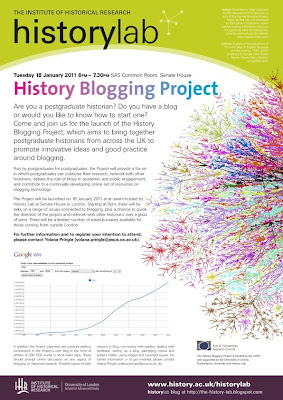Review of SpeakEasy! workshop 14/12/2010 by Amelia Nel
Speakeasy! is a one-day interactive course with practical exercises aimed at postgraduate students to improve their public speaking skills. Around 20 of us arrived bright and early on the 14th of December eager to learn new skills. We were met with coffee and biscuits by our two friendly instructors, Liza and Steve.
They divided us into two groups, one group taken for the first session with Liza, the other group taken by Steve. Liza's session covered the academic aspects of public speaking. Issues covered included: how to deal with difficult academic settings, rules to follow in such settings and how to be an effective speaker. Liza also talked about the art of writing a good presentation (know your audience, write to speak, keep it simple). Afterwards we had a practical session in which we learnt how to chair a panel at a conference, and crucially, how to answer questions from an audience effectively. Each of us had to brought a short excerpt of our work, which we delivered in a mock-conference setting, with one in each group chairing the 'conference'. Liza directed us with some difficult questions and we had to answer in an effective, clear manner.
This panel underlined that being able to speak in public with confidence and authority are two paramount skills to possess for any budding historian. Liza emphasised that when a student delivers an academic paper they need to be conscious of ways to 'hook' the audience's attention, for example by using a short anecdote relating to our work.
For session two we swapped over to Steve, who as a working actor, knows everything about how important voice projection and posture are to ensure a good acting performance. As historians, we are constantly talking about our work to others. When a speaker delivers an academic talk, that speaker is also 'acting'. Actors' techniques are very useful to assist us academics. Through a series of exercises, Steve showed us how to warm up our voices, how to improve our posture, how to articulate properly and how to speak with confidence. We practised this skill by taking turns in reading out a piece of historical writing. After this, we then returned to our own excerpts of work and delivered them to the group incorporating the techniques we had explored. Steve provided us with helpful comments on our strengths as speakers and some constructive criticism that really helped in improving our performance.
I left the workshop feeling wholly motivated and with heaps of confidence for my first public engagement as a postgraduate student. The day was well presented, interestingly delivered and both Liza and Steve were incredibly knowledgeable and helpful. I would wholeheartedly recommend this workshop to all postgraduate students. For more information on further SpeakEasy! events please contact Liza at: liza.filby@kcl.ac.uk


